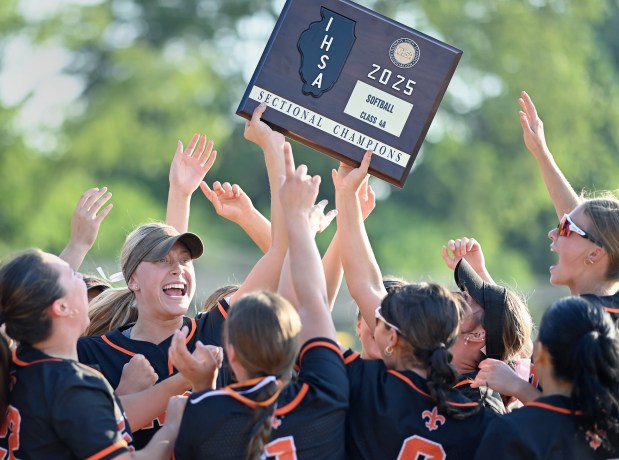Monday’s solar eclipse is this year’s scientific Superbowl. We’ve been bombarded with information about the best places to see the phenomenon, and warned to take full advantage because the next one won’t be seen over the contiguous U.S. for another 20 years.
But for many, it’s not only a bit of scientific fun but a positively religious experience.
Astrologically, a solar eclipse is viewed as a time for new beginnings. It’s a gateway to significant life changes, offering opportunities to start afresh. Biblically, the response is a little less positive. Lynn Pries, president of the Naperville Interfaith Leaders Association, says there are several references to eclipses in the Bible.
“In apocryphal passages, eclipses are usually seen as a sign of God’s wrath at the predominance of evil or as a sign of the end of the world,” he said.
Undeterred by this, the United Methodist pastor has his eclipse glasses ready so he can say he saw it with his own eyes.
Rabbi David Eber, of Congregation Beth Shalom, Naperville, says historically Jews have not welcomed eclipses.
“Traditionally, Judaism has understood eclipses to be bad omens for the entire world,” he said. “A lunar eclipse was understood to be a bad omen for Jews (because we use the lunar calendar) but a solar eclipse was seen as a bad omen for the whole world. Even in light of new scientific knowledge, some Jews would choose to not say a blessing for the eclipse because of tradition. However, others might choose to offer the traditional Jewish blessing for appreciating the wonders of Creation.”
Muslims are less superstitious.
Over at the Islamic Center of Naperville, Civic Engagement committee member and civic leader Ashfaq Syed says although there are some traditions associated with eclipses, Muslims do not believe they are associated with any worldly events.
“When Prophet Muhammad’s young son passed away, an eclipse occurred and some people tried to claim there was a connection,” he said. “The Prophet Muhammad strongly rejected that notion and said the sun and the moon are two signs of God. They do not eclipse because of someone’s life or death.”
Syed says Muslims are taught to glorify God with special prayers and give charity to the needy during an eclipse.
“Given the sadness and direct impacts on our community from the genocide in Gaza and the blessed time of Ramadan overlapping with the eclipse, we expect a huge crowd to attend the prayer while fasting on April 8,” he added.
Dr J. Colby Martin, a Naperville psychologist, says today people are far less fearful about solar eclipses than they were historically.
“For most of human history, eclipses have been viewed with fear and foreboding, generally thought to be the result of the anger of the gods for something humans have done,” he said. “But knowledge and understanding have turned this once frightening event into an occasion for both celebration and an unusual human experience that can broaden and deepen our appreciation of our world as created. It is no longer something to fear, but an event that is both magnificent in its own right and opens our minds to try to appreciate the complexity of our world.”
George Groves and his family will be travelling from Naperville to watch the eclipse from southern Illinois in the line of totality. Groves, a retired engineer, is a men’s ministry specialist at Community United Methodist Church in Naperville.
“I am not going for a religious experience, but because it’s a once in a lifetime experience,” he said. “It is just such an opportunity I do not want to miss it. I am praying for a sunny day.”
Groves said he was inspired to make the journey after a friend spoke to him about the last eclipse in 2017.
“He talked about when it was completely dark how you almost feel the hairs on your arms stand up,” he said. “You can’t get that in Naperville because there will only be a partial eclipse here. I said next time I want to go.”
Someone who also traveled to the path of totality from Naperville last time was Kathy Coutrakan and her family. Her husband George is a physicist.
“We traveled to Festus, Missouri. It took us six hours to drive there,” she said.
Along with a friend and their daughter, Coutrakan found the experience so awe inspiring she struggles to put it into words. They stood with around 100 people in an open field as the skies darkened while the moon blocked out the light of the sun.
“The scene became twilight sky 360 degrees around the horizon,” she recalled. “It was majestic. Time stood still. The experience is difficult to describe but it is one of the most powerful and impactful moments I have had the good fortune to encounter in this world.”
Coutrakan said she felt as though for just a few seconds, the earth was standing still.
“You are aware that something sacred is about to happen, it is still and all of nature seems aligned for a brief time,” said Coutrakan, a licensed clinical social worker. “The quiet is very loud and the anticipation mystifying as the sky seems to envelope you. All your senses are activated, and you feel very much part of the universe for a moment in time. It’s just fantastic, you have to be there.”
Hilary Decent is a freelance journalist who moved to Naperville from England in 2007. hilarydecent@gmail.com





